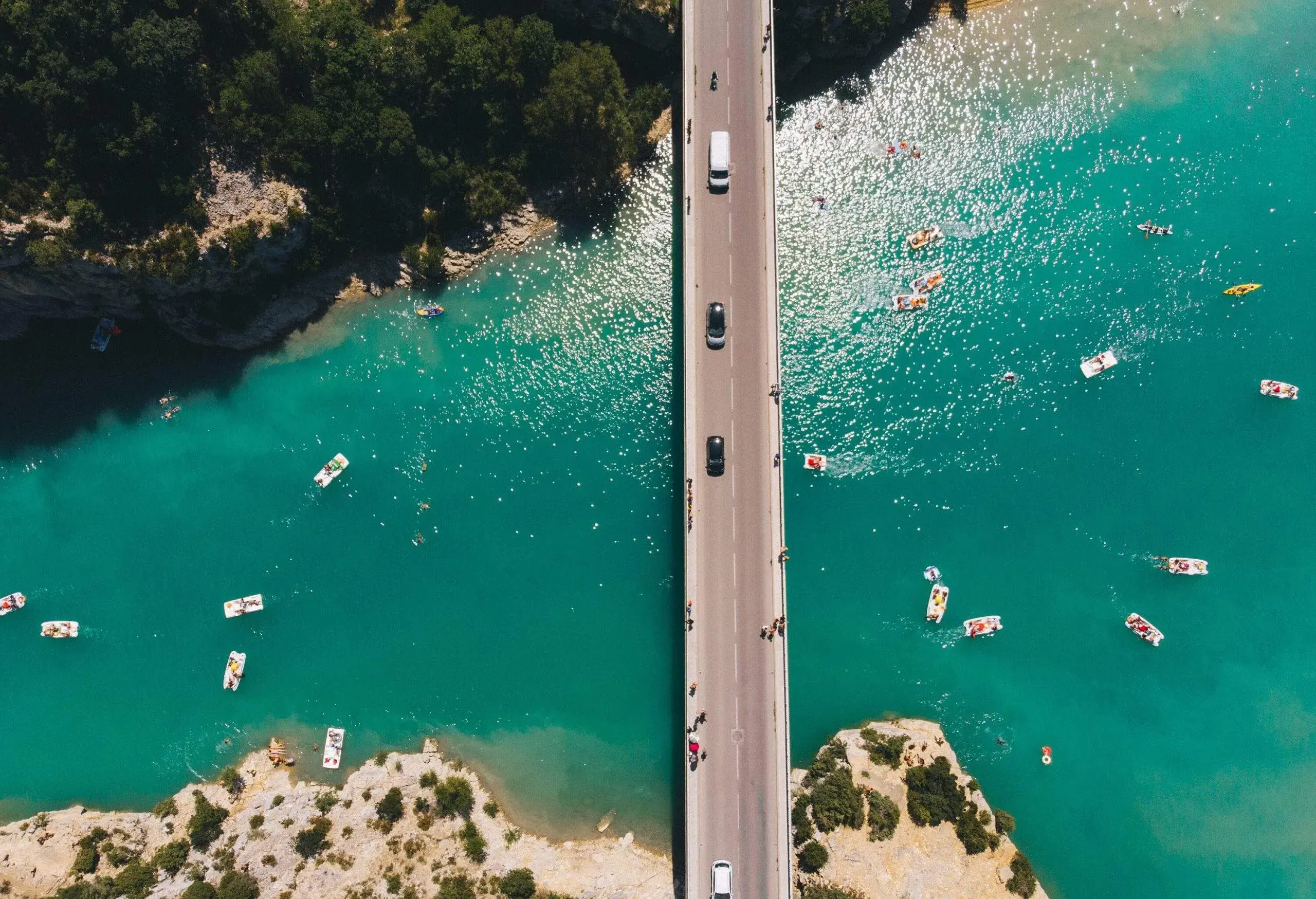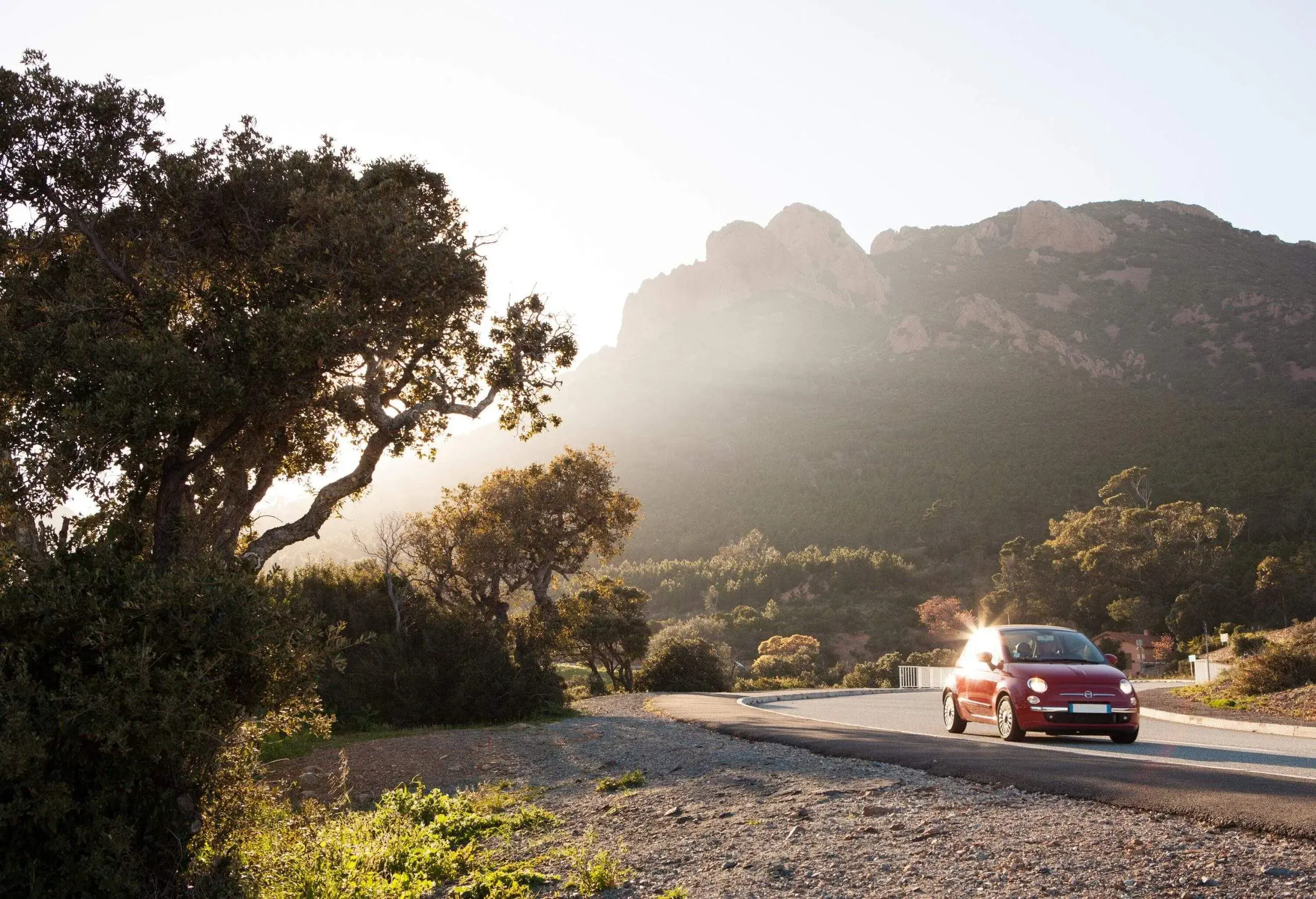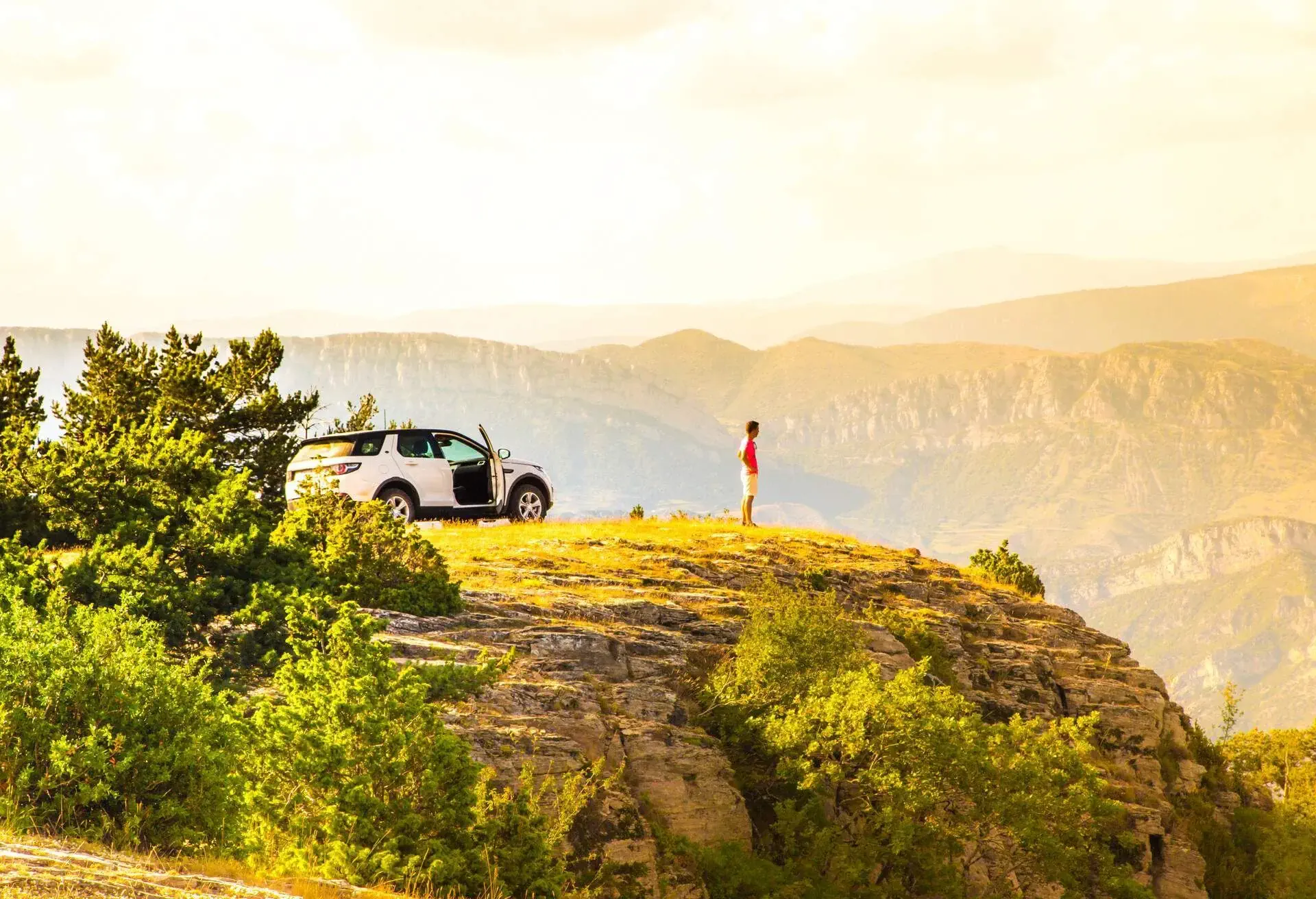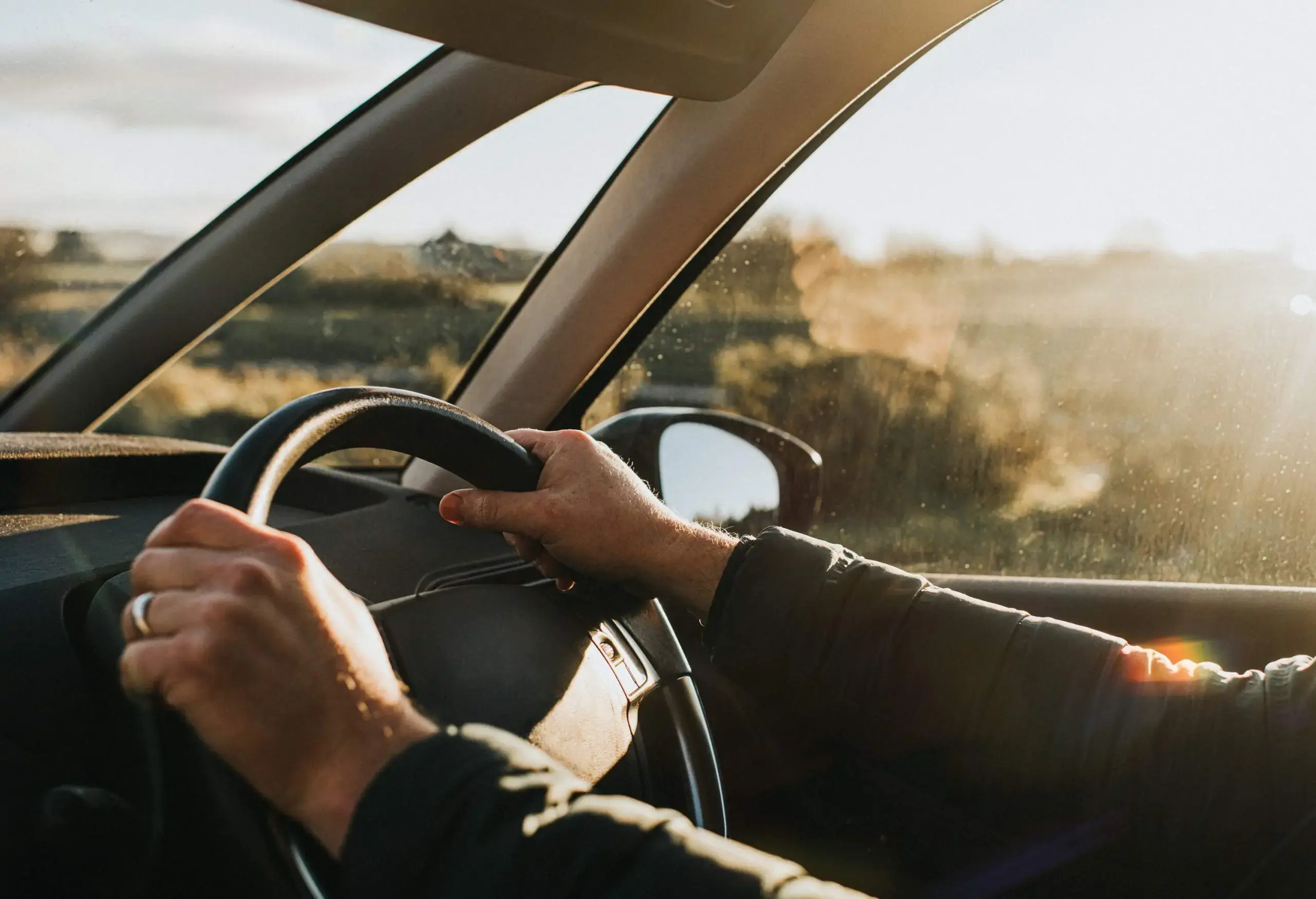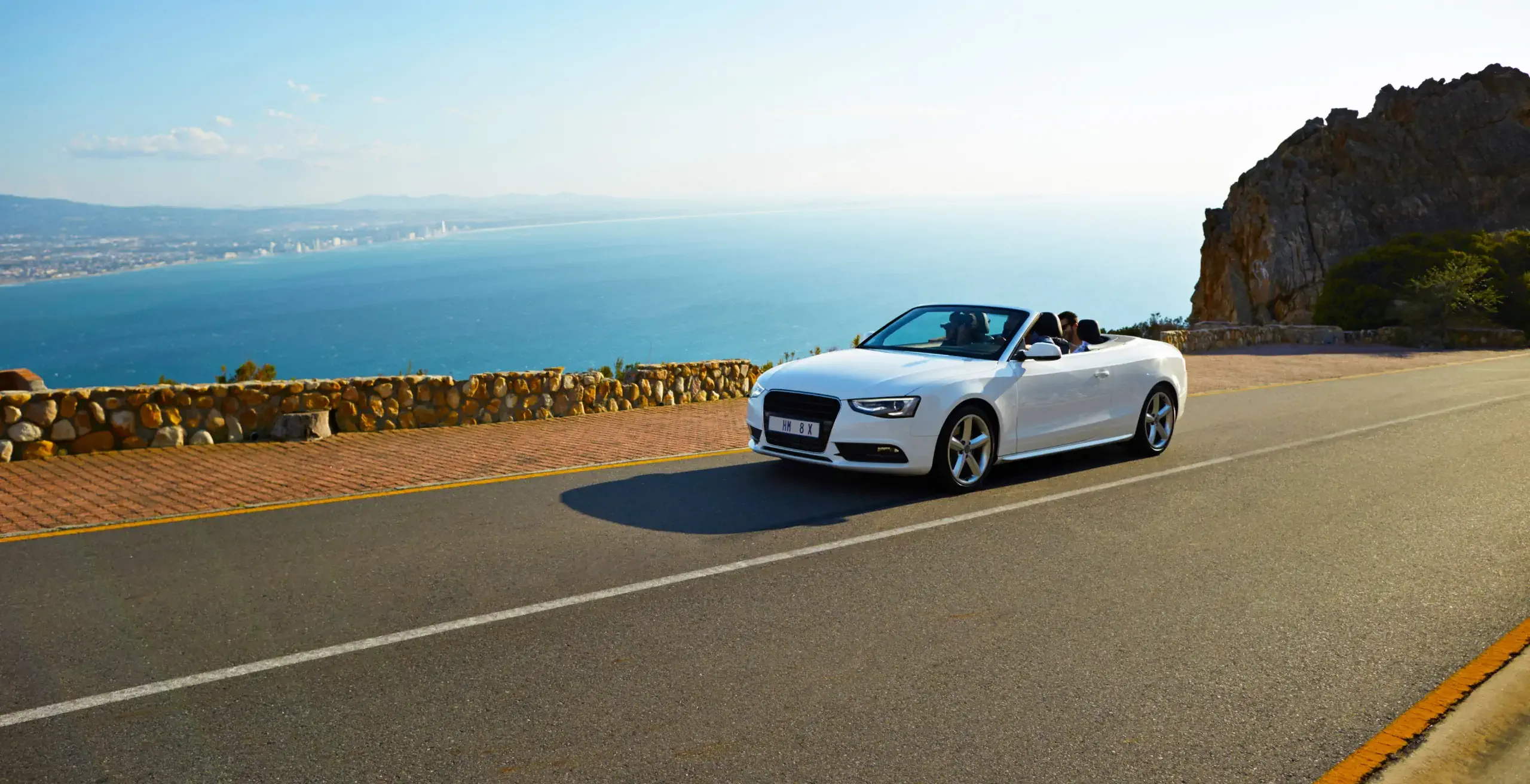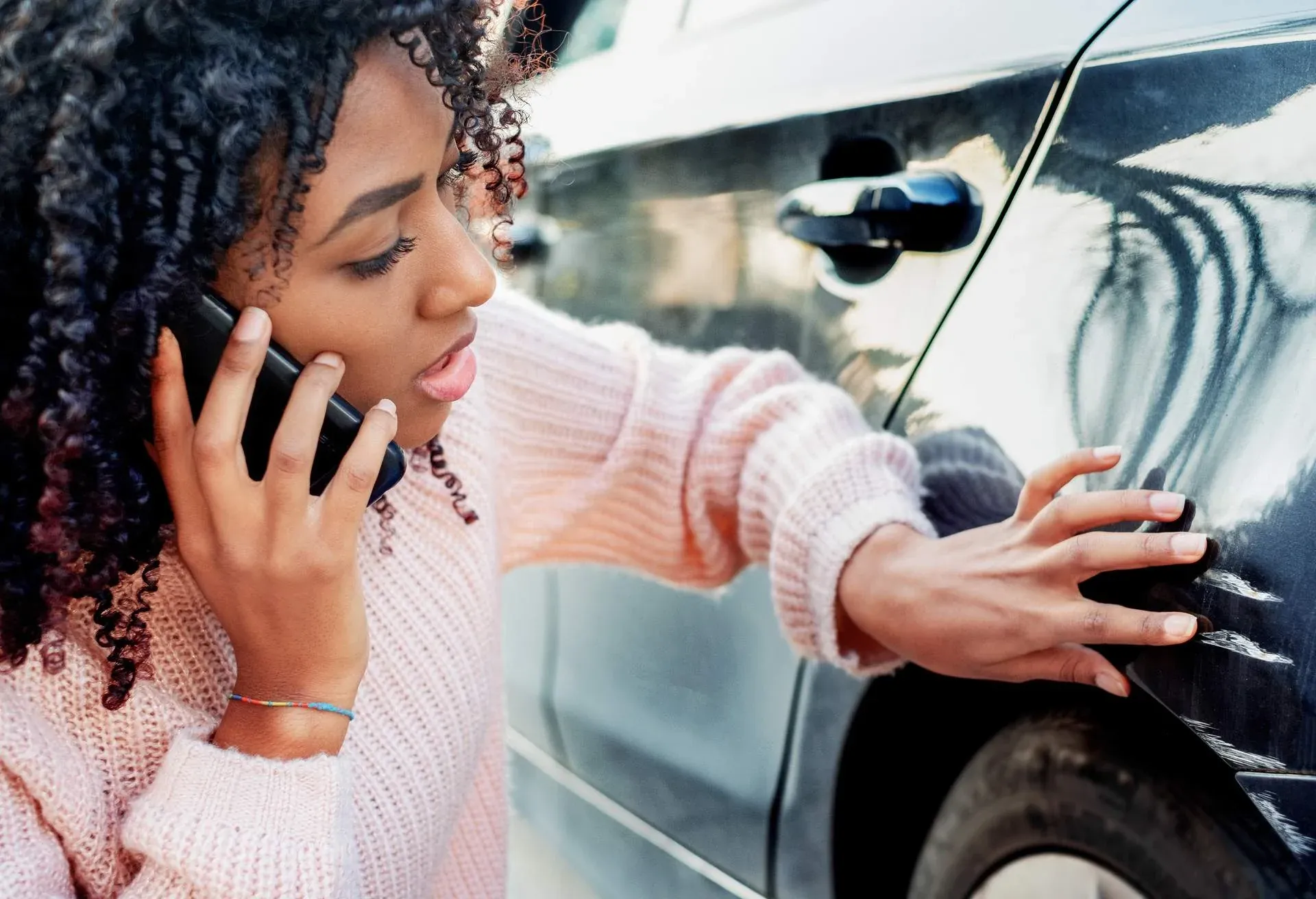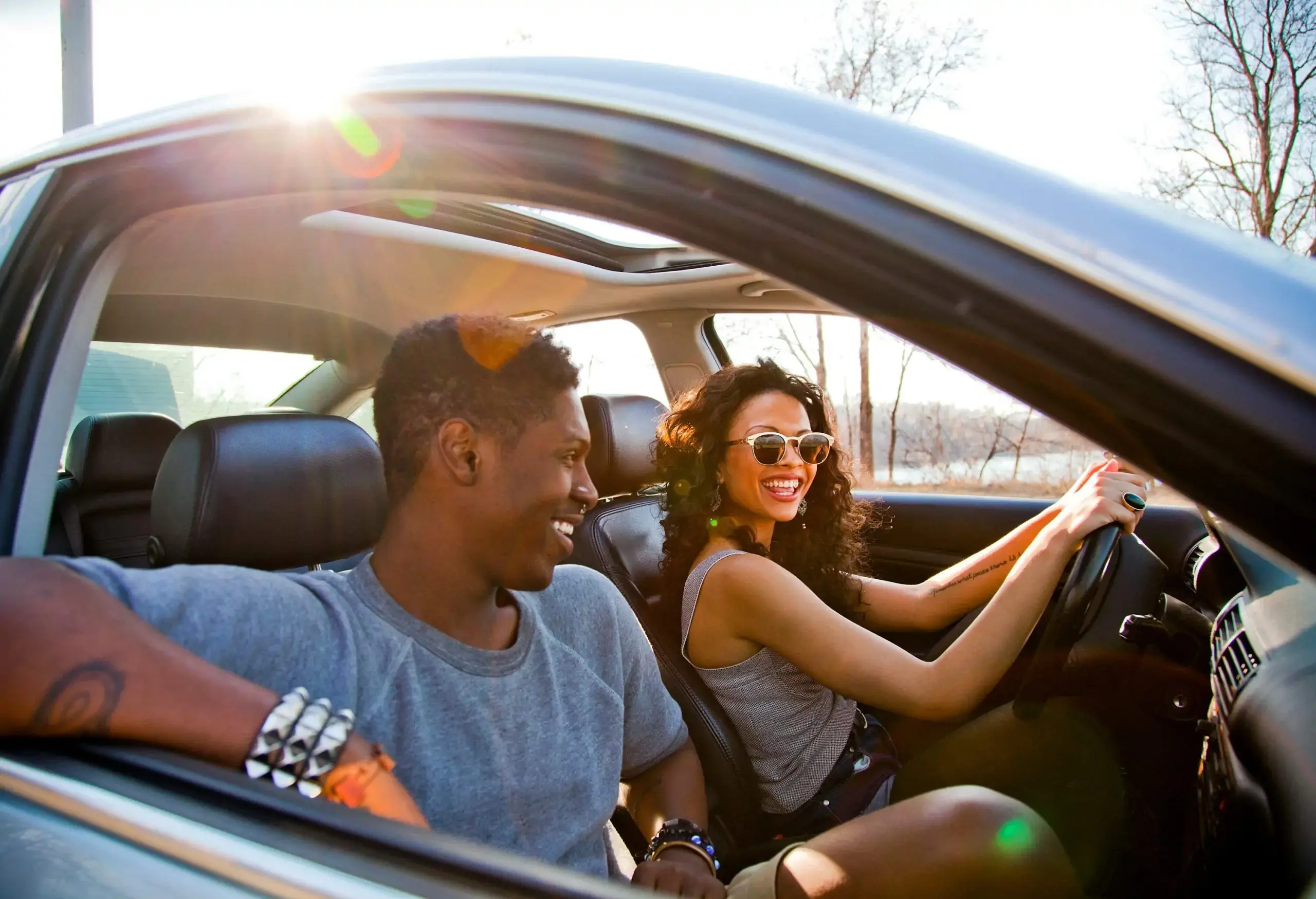Like many European countries, France has excellent public transportation. But having your own set of wheels will expand your trip to lesser-visited destinations. Here’s what to know about renting a car and driving in France.
Requirements for driving in France
Before you head off on your vacation or business trip in France, make sure you have examined all the rules and requirements – there are quite a few!
Driving in France with a US license
US visitors who plan on driving in France will most likely need an international driving permit, or IDP, which is required in France. To obtain one, you’ll need a copy of your US driver’s license, two passport photos and a completed application.
Your best bet for this: your local American Automobile Association (AAA) branch, which can handle the task for a small fee. You can make an appointment or mail in your application – but be sure to allow enough time before your trip.
Some car rental agencies in France may not ask for an IPD; your US license may suffice. But it’s highly recommended not to risk this — especially if your trip requires driving in France.
Documents to carry with you when driving in France
Below is a summary of everything you will need to take with you, keeping in mind that the minimum age for driving in France is 18+ :
- Valid driver’s license (and its translation in French, or an International Driving Permit)
- Valid passport or National ID Card (for EU citizens)
Car equipment
In addition to the above documents, your rental car should be equipped with the following items:
- Warning triangle
- High-visibility jacket
Other seasonal requirements include snow chains (if you are driving within a “Snow Zone” between November 1 and March 31.
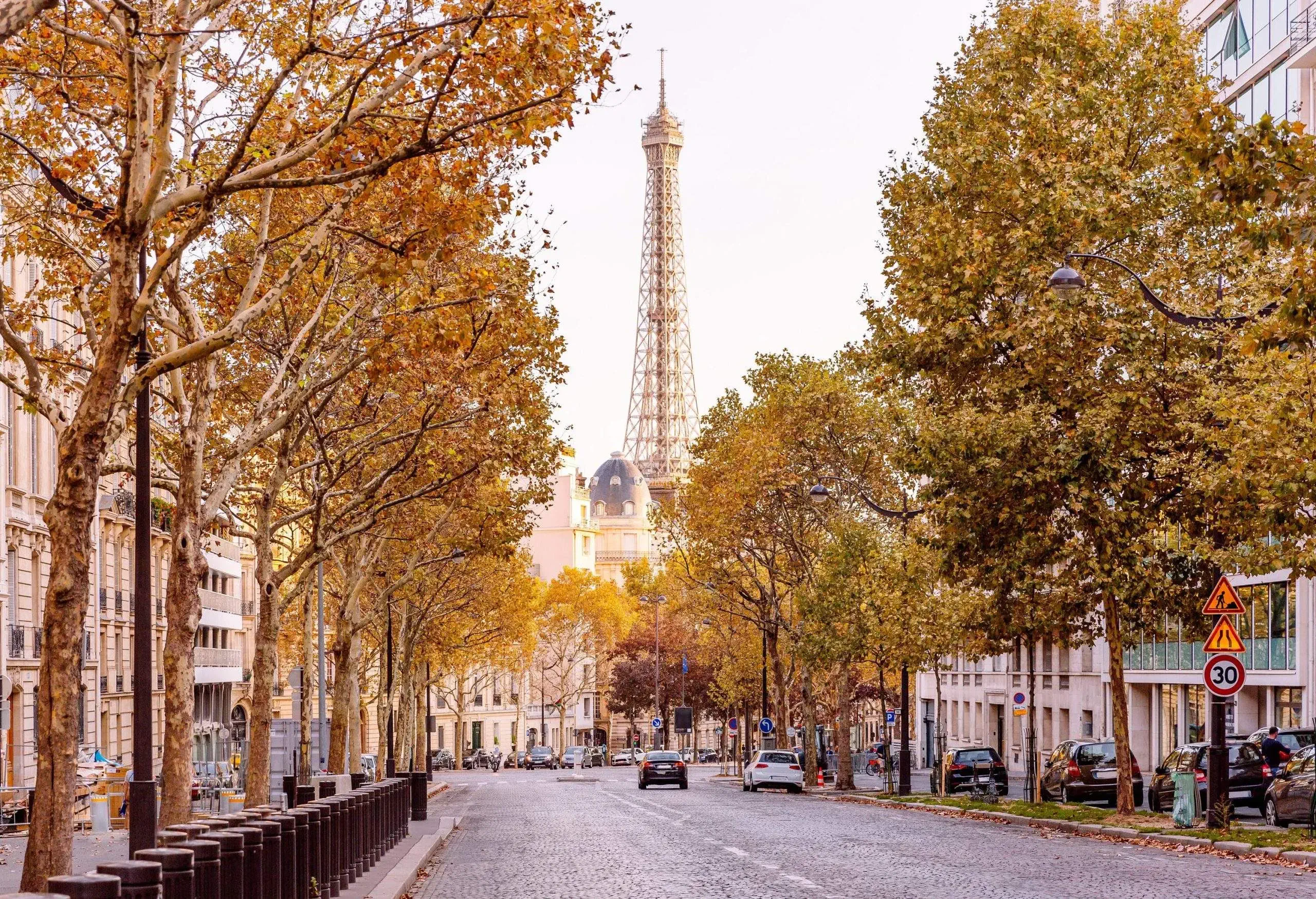
Renting a car in France
Here’s what you need to know if you’re planning to rent a vehicle in France.
What do you need to rent a car in France?
In order to rent a car in France you must be at least 18 years of age. However, some car rental companies might have a higher age minimum. Below is a list of all the normally required documents:
- Valid driver’s license (which you have had for at least a year)
- Translation of your driver’s license in French, or an International Driving Permit (IDP)
- Valid passport for identification
- Credit card (some agencies accept debit cards, but not all)
- Third-party liability insurance (this is usually included in the car rental contract)
Tips for renting a car in France
There are a few things to remember or watch out for when renting a car in France. Car rental policies usually include unlimited third-party insurance by default as this is a requirement when driving in France. For additional insurance coverage, it is best to do some research and shop around. Buying insurance from the rental car company is likely to be costlier.
If you’re planning on driving in more than one country, make sure you inform the rental car company in advance, and ensure that your insurance covers all of the countries you plan on visiting.
When you pick up your rental car, you should inspect it in detail and take note of any marks or scratches, and take photos upon returning it as proof of the condition you returned it in. Remember also that if you pick up the car with a full tank, you need to return it with a full tank to avoid refueling charges.

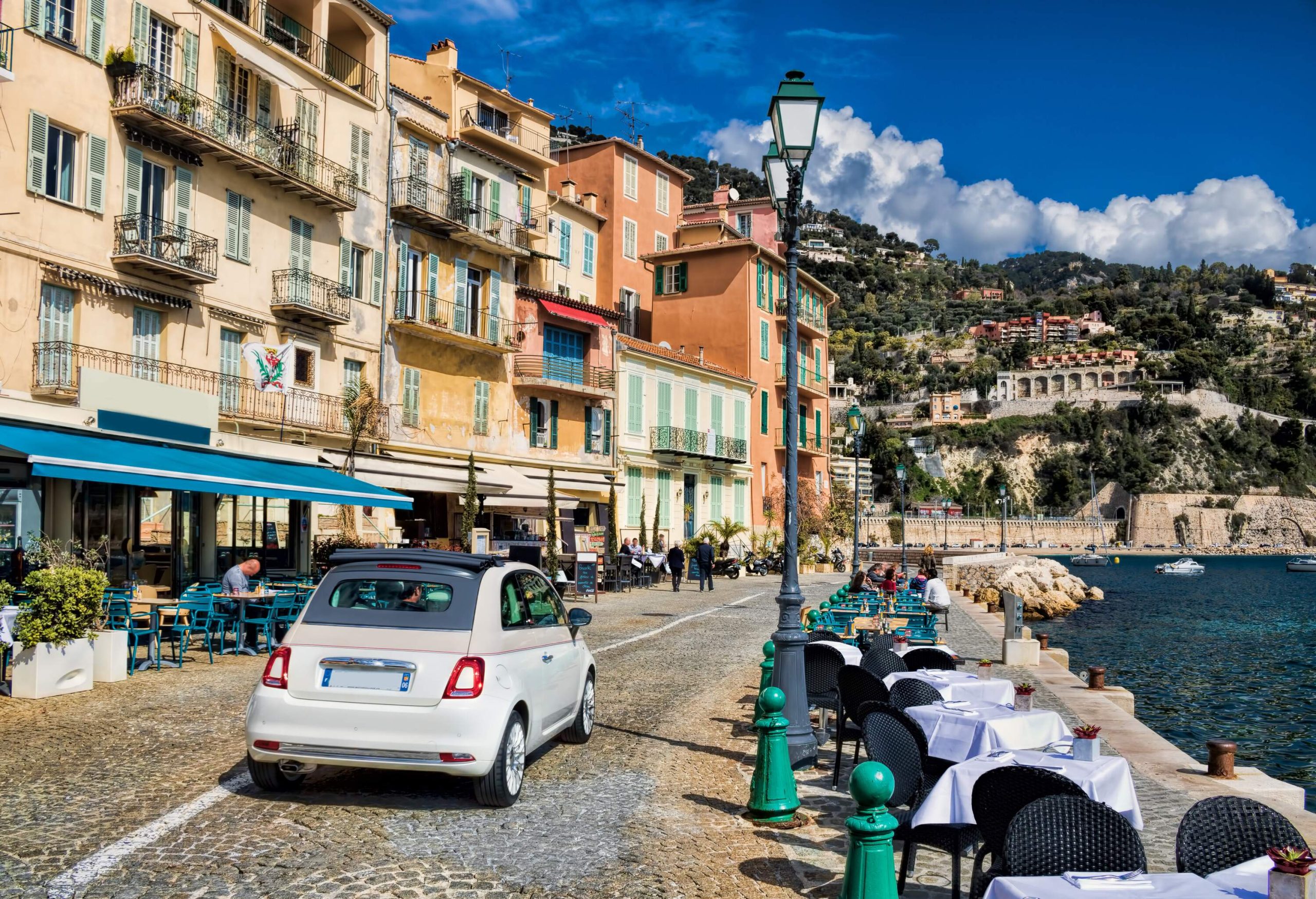
Rules of the road in France
France has some different rules of the road than the US. Here’s what to keep in mind.
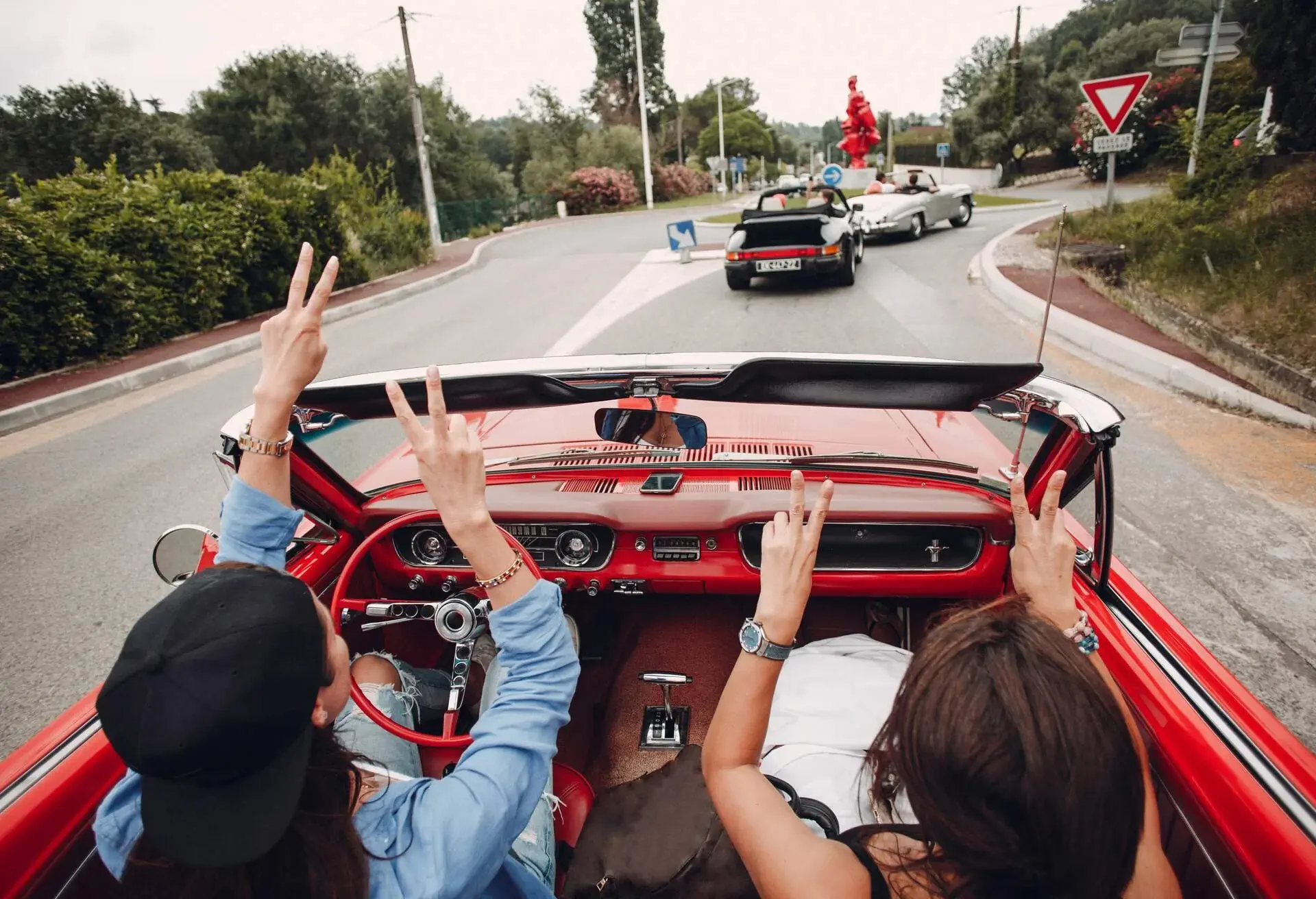
Speed limits
On a day with normal traffic and weather conditions, the speed limit in France is 50km/h (about 30mph) in populated areas, 80km/h (about 50mph) on main roads, 110km/h (about 70mph) on priority roads (more on those below) and 130km/h (about 80mph) on motorways.
Priority roads have a diamond-shaped yellow sign with a white border. They indicate that you have the right of way and the other driver must yield.
These speeds should be decreased in bad weather or poor visibility. And remember that speed limits in France are displayed on the roads in km/h – but your rental car’s speedometer should indicate this as well.
Highways and toll roads
French highways are privately owned and usually require you to pay a toll. This can be paid in cash or by card, but keep in mind that only Mastercard and Visa are accepted.
You will find three types of service areas on highways: parking areas, rest areas with playgrounds and toilets, and full-service areas with shops and gas stations. In the case of an emergency, you are not allowed to call your own tow company. Instead, use one of the orange emergency telephones situated every two kilometers along highways to call for help.
Roundabouts
In France, there are two styles of roundabout with slightly different rules.
With older roundabouts, any vehicles already on the roundabout must give way to vehicles entering the roundabout on their right. These roundabouts are less common nowadays – the most famous is the one around the Arc de Triomphe in Paris. You can usually recognize them by a triangle-shaped sign with a red border and a black X in the middle.
For new-style roundabouts it’s the opposite: Vehicles already on the roundabout have priority. Of course, emergency vehicles with a flashing siren always have priority, no matter which direction they are coming from.
Blood-alcohol limit in France
The rule in France is “Celui qui conduit, c’est celui qui ne boit pas,” meaning “the one who drives is the one who is not drinking.” It’s a very important rule that is closely monitored by law enforcement on the roads.
The maximum blood-alcohol level while driving is 0.05%. This is a lower limit than in most of the United States, so make sure you are careful with your consumption of alcohol while driving in France.
Child seat regulations
Children up to the age of 10 years must travel in a child seat or restraint in France. Infants under 30lbs (13kg) need to be in a rear-facing child seat, while kids under 40lbs (18kg) should be placed in a child seat equipped with a protection tray or a five-point harness. Finally, children under 80lbs (36kg) must be in a booster seat or booster cushion with an adult seatbelt.
Low emission zones
Some cities, such as Paris, Toulouse and Lyon, are classified as Low Emission Zones with specific rules. Any cars registered before 2011, whether regular petrol or diesel, are banned from driving within the zone on weekdays between 8am and 8pm. Trucks and buses manufactured prior to 1997 are also banned from driving inside these zones. Driving in these areas with an unauthorized vehicle can lead to a fine of €68 (around $75 USD).

Penalties and fines
There are four categories of driving fines in France. Depending on the gravity of your offense, your fine could set you back anywhere from €11 (about $13 USD) to €750 (about $810 USD).
This amount can be reduced if you pay within three days in person or within 15 days by mail. If you don’t pay within 45 days, the amount will be increased.
It is also possible to receive on-the-spot fines for such reasons as not having the Crit’Air vignette displayed on the vehicle when traveling in a Low Emission Zone or wearing headphones when driving.
Payment is usually by credit card or cash.
Parking
If you’re looking for a space to park on a road with traffic running in both directions, you are only allowed to park on the right-hand side. But if it’s a one-way street, you can park on either side, providing there is enough space.
Keep an eye out for the yellow lines on the curb indicating areas where parking is prohibited. Also make sure you read the signs to see if payment is required – a big “P” on the parking meter, or “horodateur,” means you need to pay. Otherwise, signs will depict a parking meter, usually in the bottom right hand corner. Disabled drivers have dedicated spots and do not have to pay for parking.
Fuel
It is important to know the names of the different types of fuel in French to avoid mistakes. SP95/E10 is unleaded fuel with 90% gasoline and 10% ethanol, while E85 is unleaded fuel with 70% to 85% ethanol and the rest gasoline. Important: if you see the word “Gasole” please keep in mind that this is the word for diesel – not gasoline! GPL is also available, and in some locations so are electric stations.
You can usually pay by cash or by card, but please keep in mind that some cards issued abroad are not always accepted by automated machines, so make sure you have enough cash on you, especially when driving on Sundays.
Driving in France – FAQs
In order to drive in France, you must be at least 18 years of age. But if you’re renting a car, that age might 21 (or older).
In addition to being old enough to rent a car, you’ll also need a passport, an International Driver’s Permit (or IDP) and bank account in your own name. Please be sure to check well in advance with your rental car provider, as different providers have different requirements.
Yes. But in addition to your US driver’s license, you must have its translation in French (or an International Driving Permit).
Since May 2020, it is no longer mandatory to carry a breathalyzer in your car when driving in France.



